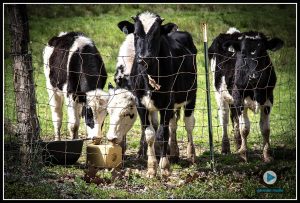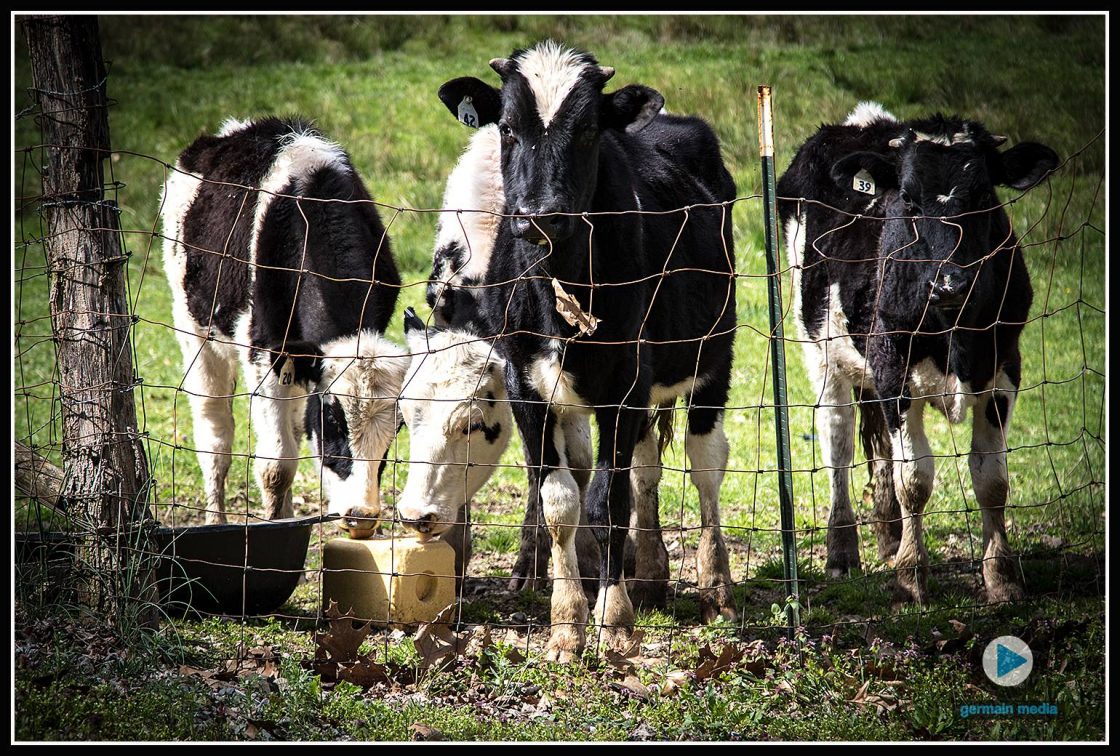Growing up in the mountains meant that life was a mixture of work and play for my sister Libby and me and for most every other child there. We sure did know how to play and would often do so in the summer until it was too dark to see. We had a whole different set of games and other fun things to do when we were stuck inside in the winter.
But we, and most other children raised in the mountains, also started doing chores and helping with the farm work at a young age as well. Libby and I helped with almost everything, tagging along after Daddy as he mended fences, cut, piled, and burned brush, herded cattle from one field to another, planted garden, shoveled a path through the snow out to the dog houses, and so much more.
Mom and Dad had no boys, only Libby and me. Although I longed for a brother as I was growing up, in hindsight, I am actually glad that there were no boys. The reason for this is simple: the work Libby and I learned to do would have been considerably more limited, for the boys would have been sent to do most of the outside work. As it was, though, I, to begin with (Libby was three years my junior), and later both of us did just as much on the farm as sons would have done. I hope and think that we were better off for it. In fact, I think getting that chance to work outside as much as we did instilled the love of tending animals and digging in the dirt that I am still drawn to today.
While we helped with many things over the years, only one chore sticks in my mind as the most important one that we became completely responsible for on our own, though I probably didn’t realize how important it was then. Winter and the burley tobacco season took Daddy away from home Sunday afternoon through Thursday afternoon, so that’s when Libby (by then old enough to do almost the same amount of work I did) and I were entrusted with the job of feeding the cattle while he was gone . I never thought much about it before, but Daddy must have had a lot more faith in us than we ever realized.
 We had a silo full of ground corn ,stalk and all, and every afternoon after school, Libby and I climbed up in the silo where the drunken sweet smell of the fermenting corn almost took your breath away. From up there we pitchforked enough silage down to the ground to feed the cattle for that day. Once done, back down we would go. We had a bushel tub at the bottom that we filled almost full of the silage and then dumped in a feeding spot in the barn. We would let one group of cattle in, where they fell in line as if their individual names were written in each stall. While they greedily ate their portion of silage, the others waited patiently outside for their turn, their hot breath filling the air with steam. We repeated this routine until all the cattle had been fed.
We had a silo full of ground corn ,stalk and all, and every afternoon after school, Libby and I climbed up in the silo where the drunken sweet smell of the fermenting corn almost took your breath away. From up there we pitchforked enough silage down to the ground to feed the cattle for that day. Once done, back down we would go. We had a bushel tub at the bottom that we filled almost full of the silage and then dumped in a feeding spot in the barn. We would let one group of cattle in, where they fell in line as if their individual names were written in each stall. While they greedily ate their portion of silage, the others waited patiently outside for their turn, their hot breath filling the air with steam. We repeated this routine until all the cattle had been fed.
Of course, by the time all these cattle had eaten those piles of silage, other piles took their place if you know what I mean. So, after feeding, we also had the dirty job of shoveling out the manure. If this is something you’ve never had the pleasure of doing, it’s hard to imagine how heavy the stuff actually is, not to mention, as Daddy would say, how “odoriferous” it was. Once we had it all shoveled out, we went back and scraped the concrete floor with the edge of the shovel to remove even more. I still remember the almost musical sound the shovel made as it scraped over the floor. The higher the manure built up on the shovel, the higher the pitch. Put two scraping shovels together, and you practically had a symphony, especially if there was a dog around to join in as the high pitched sound compelled him to softly howl. Finally, we hosed it all down.
The winter of my senior year in high school was one of the worst we had had in many years, and the wind blew wickedly all the time at the top of the hill where we lived. It snowed almost continually. The wind combined with the snow made huge drifts of snow a scary reality when you had to carry bales of hay over them, and the yearling steers behind the house had to have two bales every day.
Although it seems insane to be thankful for the very cold temperatures we had that winter, Libby and I were. The cold temperatures caused a hard crust that sparkled like diamonds to form on top of the snow drifts much the same way as ice forms over water. Thick enough to hold our weight, this crust made getting the hay bales out beyond the drifts much easier than it would have been had we had to shovel enough snow to carry them out to where we fed the cattle.
But it was also somewhat dangerous because your foot and weight had to hit the crust just right or you might hit a thin spot, and break through, falling into the softer snow underneath. And so it went. We were walking out over the snow drift which got deeper the further down the hill we went. We got about halfway to where we needed to be when all of a sudden I heard a thud. One (only one) of Libby’s legs had disappeared into a drift of snow. We were home alone, and Mom wouldn’t be home from work at Sears until well after dark. There was no one around, and back then, we couldn’t exactly pull out our cell phone to call for help.
For a few moments, time stood still as I let fear wash over me. I wondered what on earth I was going to do to help Libby out of the drift without breaking through myself. I had visions of us both freezing to death before Mom got home from work that evening! I did the only thing I could do; I got down on my stomach to distribute my weight out as much as I could and slowly worked my way to her. Finally, I reached out for her to grab my arm. She pulled herself up a little, and I inched backward just a little. This worked like a charm, and in just a few minutes, we had performed the impossible–Libby was free from the jaws of a certain snowy death! (Well, that might be just a little over the top!) We brushed ourselves off, finished feeding the cattle, and went into the house where we changed out of our now wet clothes and sat next to the wood stove to warm up, neither of us any the worse for the wear. Who knew feeding a few head of cattle could such an adventure?!?
The farm was all we knew as we grew up. We didn’t know that the work we did was actually pretty hard stuff; we just knew we it was what you did. We learned many valuable lessons during those days. We learned that most problems can be solved with a little ingenuity, that teamwork makes the burden of work easier, that you can be successful when success seems out of reach, and that, as Daddy preached, if a job is worth doing at all, it is worth doing well. These lessons learned early on have served me well all my life, helping me to get through difficult circumstances and decisions and to enjoy the blessings of a simple life lived well.
**These are my childhood memories of growing up in Appalachia. They are true but also subject to the normal foibles (and, in this case, maybe just a slight exaggeration) of the mind.

